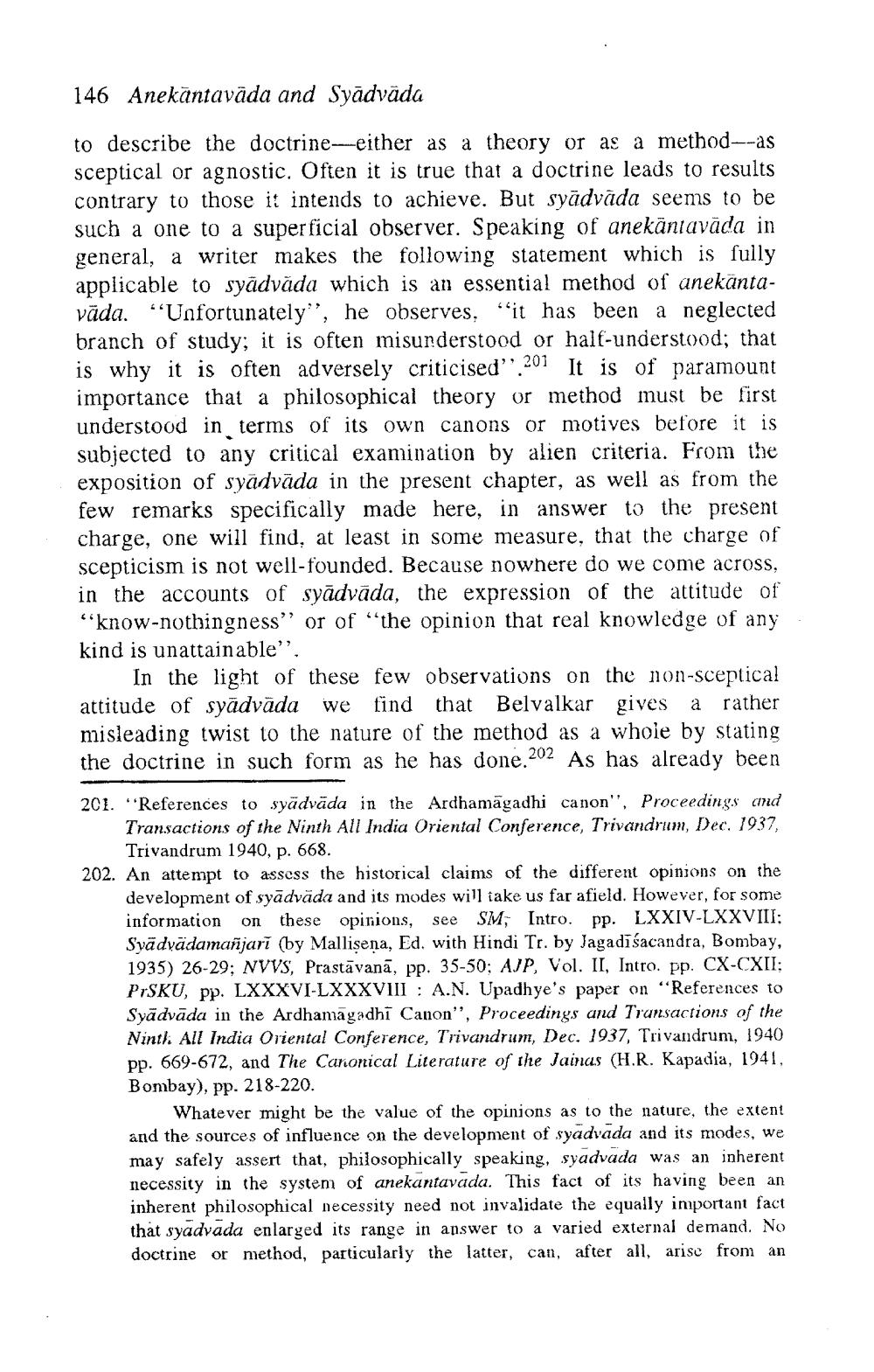________________
146 Anekāntavāda and Syādväda
to describe the doctrine-either as a theory or as a method--as sceptical or agnostic. Often it is true that a doctrine leads to results contrary to those it intends to achieve. But syūdvāda seems to be such a one to a superficial observer. Speaking of anekāntavāda in general, a writer makes the following statement which is fully applicable to syadváda which is an essential method of anekantavāda. “Unfortunately, he observes, "it has been a neglected branch of study; it is often misunderstood or half-understood; that is why it is often adversely criticised”.201 It is of paramount importance that a philosophical theory or method must be first understood in terms of its own canons or motives before it is subjected to any critical examination by alien criteria. From the exposition of syadvāda in the present chapter, as well as from the few remarks specifically made here, in answer to the present charge, one will find, at least in some measure, that the charge of scepticism is not well-founded. Because nowhere do we come across, in the accounts of syādvāda, the expression of the attitude of "know-nothingness' or of the opinion that real knowledge of any kind is unattainable”.
In the light of these few observations on the non-sceptical attitude of syādväda we find that Belvalkar gives a rather misleading twist to the nature of the method as a whole by stating the doctrine in such form as he has done.202 As has already been
201. References to syādvāda in the Ardhamāgadhi canon", Proceedings and
Transactions of the Ninth All India Oriental Conference, Trivandrum, Dec. 1937,
Trivandrum 1940, p. 668. 202. An attempt to assess the historical claims of the different opinions on the
development of syādvāda and its modes will take us far afield. However, for some information on these opinions, see SM; Intro. pp. LXXIV-LXXVIII: Svädvädamañjarī (by Mallisena, Ed. with Hindi Tr. by Jagadīšacandra, Bombay, 1935) 26-29; NVVS, Prastāvanā, pp. 35-50; AJP, Vol. II, Intro. pp. CX-CXII: PrSKU, PP. LXXXVI-LXXXVIII : A.N. Upadhye's paper on “References to Syādvāda in the Ardhamagadhi Canon”, Proceedings and Transactions of the Ninth All India Oriental Conference, Trivandrum, Dec. 1937, Trivandrum, 1940 pp. 669-672, and The Canonical Literature of the Jainas (H.R. Kapadia, 1941, Bombay), pp. 218-220.
Whatever might be the value of the opinions as to the nature, the extent and the sources of influence on the development of syadvada and its modes, we may safely assert that, philosophically speaking, syadvada was an inherent necessity in the system of anekantavada. This fact of its having been an inherent philosophical necessity need not invalidate the equally important fact that syadvada enlarged its range in answer to a varied external demand. No doctrine or method, particularly the latter, can, after all, arise from an




